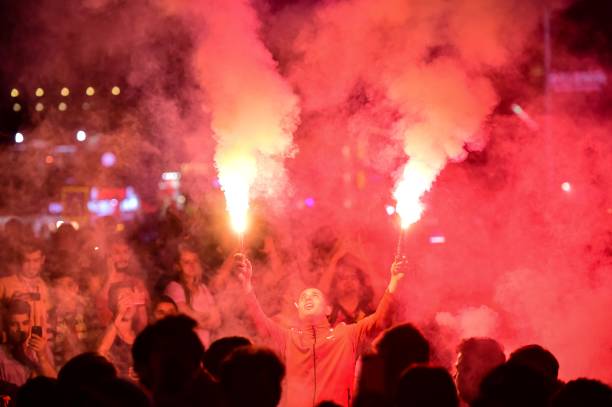
As we all know, Turkish football boasts one of the most passionately devoted fanbases in the entire world. This is unsurprising given the talent on the pitch and the sheer quality of the football played at pretty much every match.
For decades, away matches at big Turkish clubs such as Fenerbahçe, Galatasaray and Besiktas have been regarded as some of the toughest games in European football. Yet rarely has this reputation for being hard to beat translated into Turkish teams winning major trophies on the continent.
Turkish Teams in European Competitions
Galatasaray were the first Turkish team to play in Europe when they entered the European Cup in 1956. Now, 66 years later, Turkey has one success to its name, which was achieved when Galatasaray beat Arsenal on penalties in 2000.
Both Besiktas (2013) and Goztepe (1969) have reached the semi-finals of Europe’s second-tier competition (currently the Europa League). No Turkish club has yet made it as far as the semi-finals of the Champions League, although Galatasaray reached that stage of the old European Cup in 1989, losing to Steaua Bucharest. So, despite the domestic success, it’s easy to see why very few punters place football bets on the biggest Turkey’s top teams to win in Europe.
Why Don’t Turkish Sides Compete at Europe’s Top Table?
Turkish teams have had some big-name players over the years, but many have failed to hit the same heights they did elsewhere.
For example, the likes of Franck Ribery and Frank De Boer had short-lived careers at Galatasaray. In another case, 16 goals in 31 games in his first season for Fenerbahçe wasn’t enough to endear Robin van Persie to fans of Fenerbahçe. The Dutchman spent most of his second season at the club as a sub before eventually departing.
Last season, Dele Alli attempted to resurrect his career at Besiktas but failed to recapture the form from his best days at Tottenham. In all these instances, players suffered the wrath of the faithful fans, who had eagerly expected more.
It seems the fervour with which Turkish fans get behind their teams isn’t just intimidating for players from the opposition. Of course, fans across the world can give players a hard time when they perform badly, however, there’s an intensity in Turkish football that doesn’t quite exist across the rest of Europe.
This pressure makes it hard for new players who don’t adapt quickly to be welcomed by fans and given support, which in turn raises the question of why top players would want to join the Super Lig.
Ribery, De Boer and van Persie joined towards the end of their careers. So did Didier Drogba and Roberto Carlos, both of whom were more successful than the trio. Dele arrived as his options were few following a drop in form.
Turkish teams have never managed to attract significant numbers of top players at the peak of their careers and the financial clout of the Premier League and Saudi Pro League (among others) doesn’t help this issue. So, what does the future hold for Turkish football?
The Future of Turkish Teams in European Football
The Turkish Super Lig is competitive and produces some top sides. The fans make Turkish grounds a cauldron for opposition players. If the top clubs in Turkey can’t attract the best players due to financial restrictions, they must up their game tactically.
Any supporter of a Turkish team competing in Europe has the right to expect that they win more home games than they lose because of the sheer power of the atmosphere in the stadium. With points on the board (or goals in the knockout stages) from home games, with a little tactical nouse, there should be no reason we don’t one day see the Champions League trophy paraded through Istanbul.










